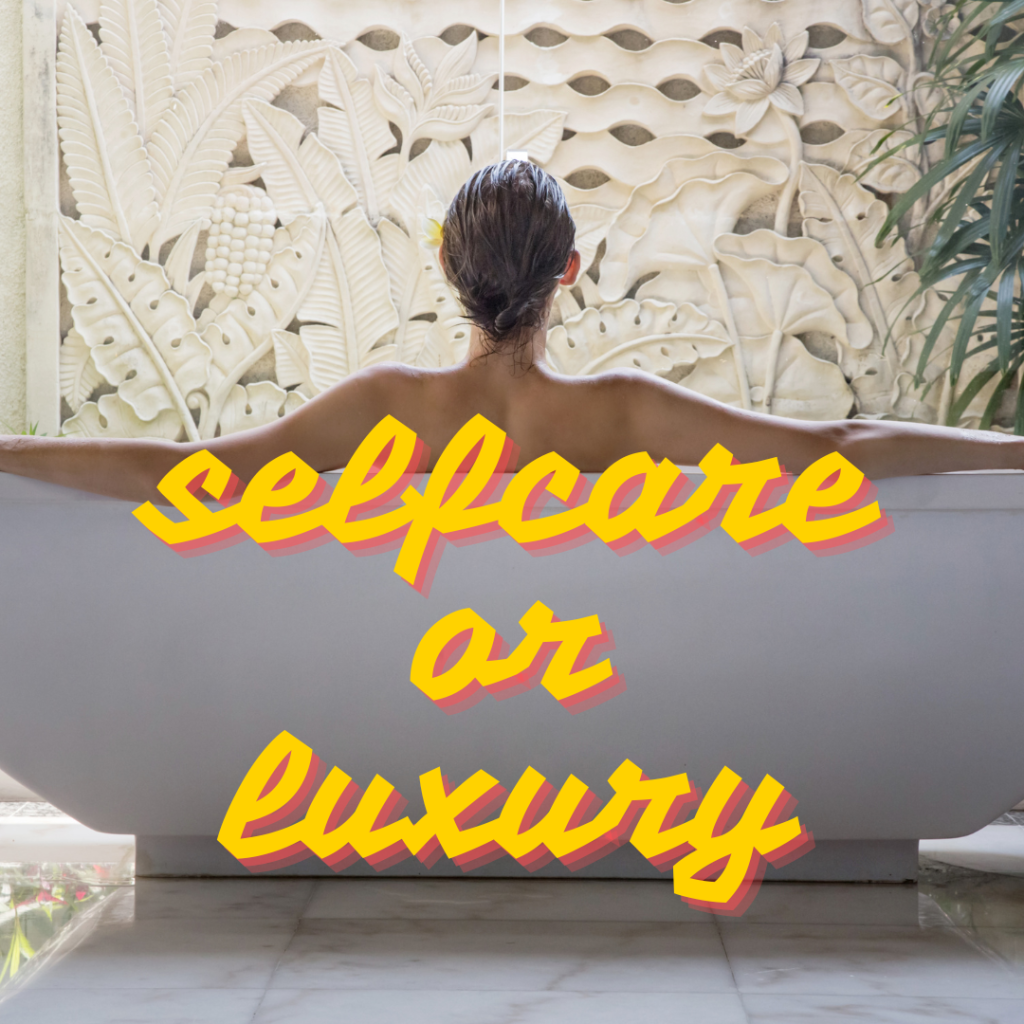
In recent years, the booming interest in self-care has spotlighted skincare and makeup, transforming these daily rituals into a sacred practice. While caring for one’s skin is undeniably an act of self-love and wellness, the question arises—where do we draw the line between genuine self-care and sheer luxury? As an organic skincare brand committed to sustainable self-care, we are diving deep into this topic to unravel the threads of necessity versus indulgence in today’s beauty culture.
The Rise of Self-Care as Luxury
Self-care has become a buzzword, often showcased as a necessity wrapped in the lavishness of high-end skincare and makeup products. The beauty industry has not shied away from capitalising on this trend, frequently marketing luxury as essential. While treating oneself with a high-quality serum or a beautifully crafted lipstick can indeed be a delightful act of self-care, it’s crucial to recognize when these purchases are driven by genuine need versus a compelling advertisement.
The Overconsumption Trend in Skincare and Makeup
With the abundance of products available, consumers are often led to believe that more is better. The allure of gold-infused night creams, exotic ingredients, and limited-edition makeup palettes can make anyone feel like they’re missing out if they don’t partake. However, this overconsumption not only strains personal budgets but also our planet. The environmental impact of producing, packaging, and discarding beauty products is enormous, often involving non-recyclable materials and complex supply chains that add to our carbon footprint.
Our brand advocates for a return to simplicity and sustainability in skincare. It’s about choosing products that serve a purpose without causing harm—both to our skin and the environment. Organic and sustainably sourced ingredients are at the heart of what we believe is true self-care: nurturing oneself in a way that also respects and preserves the natural world.
Decoding Marketing Messages
The beauty industry’s marketing strategies often blur the lines between luxury and necessity. Phrases like “must-have,” “essential,” and “can’t live without” are frequently used to describe high-end products. It’s important for consumers to navigate these messages critically, recognizing that while these products may offer enhanced experiences, they are not prerequisites for effective or meaningful self-care.
Luxury vs. Essentials in Skincare
Understanding what your skin truly needs is the first step in distinguishing between luxury and essential skincare. Basic skincare—cleansing, moisturizing, and sun protection—can be achieved with minimal products that are free from harmful chemicals and packed with natural ingredients. Anything beyond that, while potentially beneficial, falls into the category of luxury.
Luxury in skincare should be about occasional indulgences that bring joy and enhance your self-care routine without becoming habitual excesses. For instance, a high-quality organic face mask used once a week can feel luxurious without encouraging overconsumption.
The Role of Mindful Consumption
Mindful consumption is about making informed, conscious choices. It involves asking ourselves whether a product is necessary, what value it adds to our routine, and if it aligns with our ethical standards. By choosing to support brands that prioritize sustainability and ethical practices, consumers can enjoy luxury in moderation without compromising the ethos of true self-care.
Conclusion
At the end of the day, self-care should be about feeling good both inside and out. It’s perfectly fine to enjoy luxury, but it’s crucial to do so with mindfulness and a clear understanding of what self-care genuinely means to you. By focusing on sustainability and the real necessities of skincare, we can ensure that our self-care routines contribute positively to our wellbeing and the health of our planet.
Let’s redefine self-care by embracing products that not only make us feel pampered and rejuvenated but also uphold our commitment to the environment and ethical consumerism.

